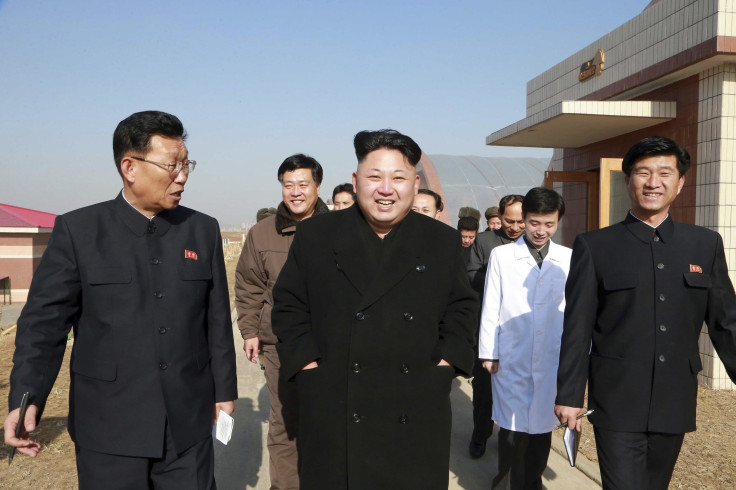Sony Hack: Sanctions Against North Korea Likely To Be Ineffective, Experts Say

When U.S. President Barack Obama acted to end the decades-long trade embargo on Cuba last month, he called the tactic “outdated,” but just weeks later U.S. officials placed similar sanctions on North Korea in response to a cyberattack on the Sony Corp., as reported by the Associated Press.
Cutting off trade ties is an age-old method for handling geopolitical disputes, but experts say the tactic is largely ineffective. Sanctions offer lawmakers a way to show they’re taking action, but the measures rarely produce real change. “They often make us feel good without altering behavior,” says Barry Bosworth, former presidential adviser and current senior economist at the Brookings Institution in Washington.
Sanctions are most often imposed on countries that are likely to “resist as a matter of principle,” says Bosworth. For example, North Korea is already disconnected from much of the world, and Cuba has had diplomatic ties elsewhere, which mitigated the effects of being cut off from American trade.
“They matter less for less developed countries like Iran, Cuba and some African countries who had less dependence of international finance and can utilize simpler systems of barter trade,” Bosworth says. “The effects also decline over time as countries find a way around the sanctions.”
He said that modern sanctions are more effective on countries such as Russia that depend highly on the international banking system in the trade of products such as crude oil.
“They are also most influential if a large number of countries will cooperate in enforcing them,” Bosworth says.
In this case, Cuba is a prime example of the U.S. working alone.
The American embargo against Cuba began in late 1960, as noted by the Peterson Institute for International Economics. It was extended over the next few years to include almost all trade. But while the U.S. pulled its business out, allies such as Japan, Spain and the U.K. maintained their ties, which ended up creating unique advantages.
Last month, however, Obama announced plans to reverse the embargo and re-establish economic, political and social ties.
“[T]hough this policy has been rooted in the best of intentions, no other nation joins us in imposing these sanctions, and it has had little effect beyond providing the Cuban government with a rationale for restrictions on its people,” the president said Dec. 17, when announcing his plan to “end an outdated approach that, for decades, has failed to advance our interests.”
The latest U.S. sanctions against North Korea in response to a cyberattack on Sony Pictures Entertainment may share a similar fate.
“The sanctions imposed against North Korea are not going to change its regime nor improve its international behavior to any significant degree,” says Bryan R. Early, director of the Project on International Security, Commerce and Economic Statecraft at the University at Albany of the State University of New York. In fact, he notes there are many cases in which sanctions have caused more problems within the targeted countries.
“Economic sanctions can thus have a range of really adverse effects on their targets,” he says, pointing out that some governments engage in more human-rights abuses, curb media freedom and even see an increase in transnational crime within sanctioned states and their neighbors.
To prevent this, lawmakers have turned to what Early calls “smart sanctions,” which seek to target individuals without affecting innocent populations within the targeted country.
In the past year, American authorities have used these techniques in sanctions on Russian officials and companies, in response to the country’s role in the ongoing Ukrainian conflict that has claimed thousands of lives.
These actions have been hurting some key players in various ways, whether it’s canceled vacations for the country’s super-rich or the Exxon Mobil Corp.’s pulling out of its substantial oil operations in the nation’s Arctic region. But it’s unlikely the sanctions are responsible for Russia’s current economic crisis, which probably has more to do with a regional slowdown and comparatively low oil prices.
“The short answer is that economic sanctions usually have only modest effects, even if they can be an essential means of demonstrating moral resolve,” Harvard University economics professor Kenneth Rogoff writes in a blog post this week.
Although he notes some important exceptions, such as the international pressure against South Africa during the apartheid era of the 1980s and the sanctions on Iranian oil, he points out sanctions are oftentimes more a political move than anything else, and allow policymakers to take action on an issue with relatively low risk.
“The effects of sanctions are often fairly disappointing,” Rogoff writes, indicating that even the first recorded economic sanctions, dating back to Greece in 432 B.C., weren’t especially effective and ended up causing a war.
“One can only hope that in this century, wiser heads will prevail, and that economic sanctions lead to bargaining, not violence,” he writes.
© Copyright IBTimes 2025. All rights reserved.






















